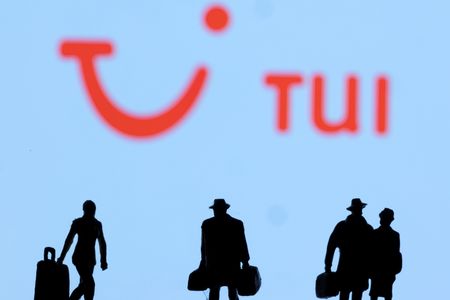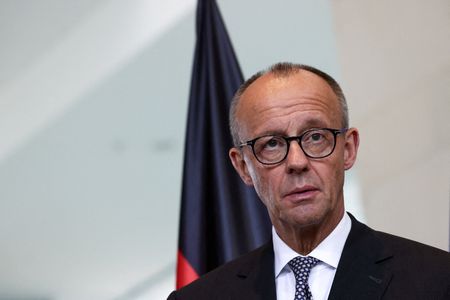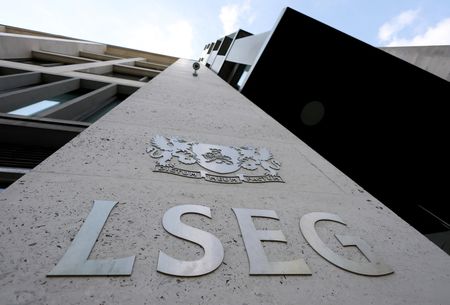By Ilona Wissenbach and Joanna Plucinska
FRANKFURT/LONDON (Reuters) -Europe’s largest tour operator TUI beat quarterly earnings and revenue forecasts on Wednesday as summer travel proved more resilient and investments and bookings ahead of the winter season allowed it to raise its full-year outlook.
TUI raised its full-year profit guidance on Tuesday, after strong hotel and cruise demand boosted the business in the first nine months of its year ending September 30, sending shares up.
Detailing its third-quarter results on Wednesday, TUI reported underlying earnings before interest and tax (EBIT) of 321 million euros ($375 million) in the quarter ended June 30, up 38% year-on-year and ahead of the 269 million euros expected by analysts polled by LSEG.
Revenue across all segments rose 7% to 6.2 billion euros, slightly ahead of analysts’ forecasts.
The group’s shares were up more than 2% in early trading.
European airlines broadly performed well during the second quarter as a drop in travel demand proved less pronounced than feared and appeared to have had a limited impact on results.
The core summer season travel used to drive a big part of airlines’ revenue, but some of that demand is shifting as travellers look to escape heat and crowds and look for deals in spring and autumn.
TUI Chief Executive Sebastian Ebel said bookings, particularly among British customers, remained robust.
“The third quarter and the first nine months of the financial year 2025 were strong. Our strategy is paying off,” Ebel said in a statement on Wednesday, highlighting its strategy to diversify its offering across Central Europe and Asia and to invest more in hotels and cruises.
TUI is also confident about upcoming winter bookings as it sees a marked increase in interest in “shoulder season” travel, meaning holidays booked in late October, November and spilling into the Christmas season in December.
To capitalise on the rise in demand for travel outside of the summer season, the company was investing in upgrades, such as heated pools in year-round destinations including Antalya, the Greek Islands and Algarve in Portugal, Ebel told journalists on Wednesday.
STRUGGLES CONTINUE
The company acknowledged that the environment for its airlines business remained difficult, noting weaknesses, particularly among German consumers and in bookings for U.S. destinations.
In the previous quarter, TUI had flagged a slight drop in summer bookings, amid concerns that inflation and economic worries could weaken travel demand.
While there was a 2% decline in summer bookings tied to the Middle East conflict, ticket prices were up 3%, helping to balance out higher costs, according to a media presentation.
European travellers, making up the core base of TUI’s customers, tend to be more price-sensitive than North American travellers.
German bookings fell 5% due to hot weather, Ebel told reporters, but said he expected more customers in the autumn.
“There are people who really think, ‘I’ll stay in my garden, during the summer, and I’ll go on vacation in October, November,'” Ebel said.
($1 = 0.8559 euros)
(Reporting by Rachel More, Joanna Plucinska and Ilona Wissenbach; Editing by Miranda Murray, Rachna Uppal and Tomasz Janowski)











